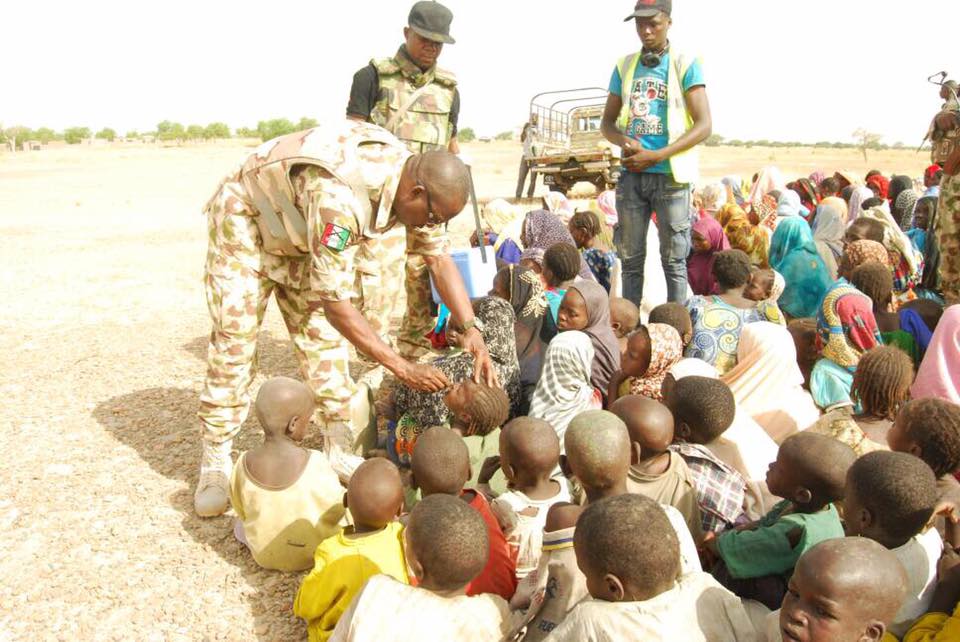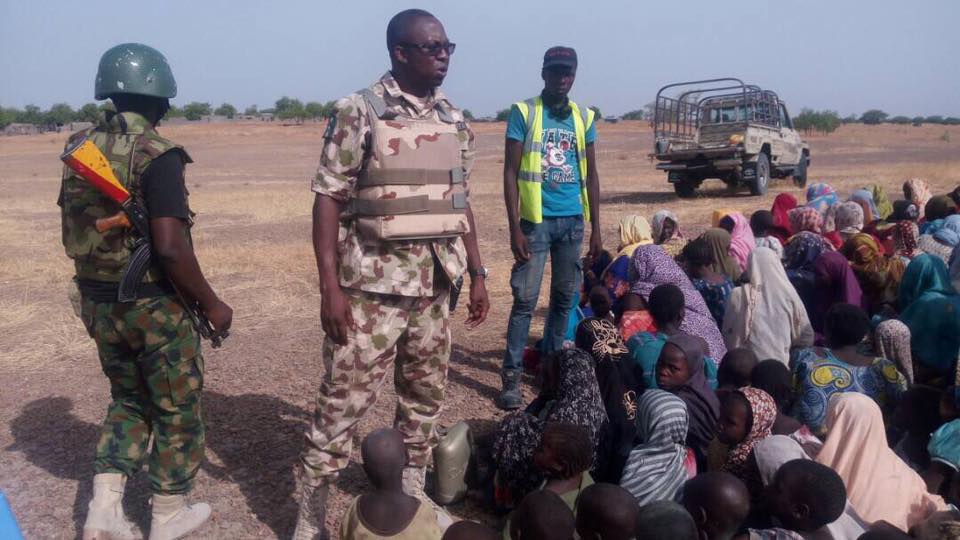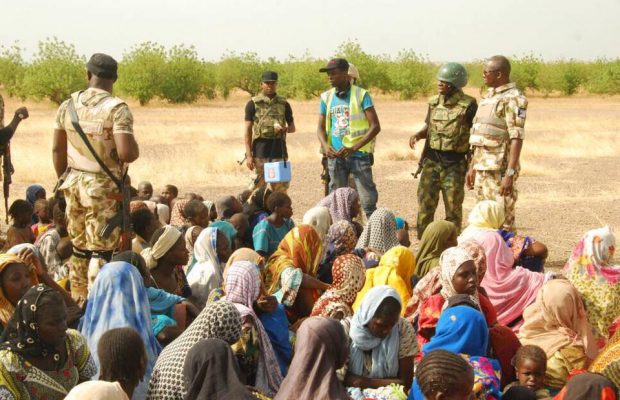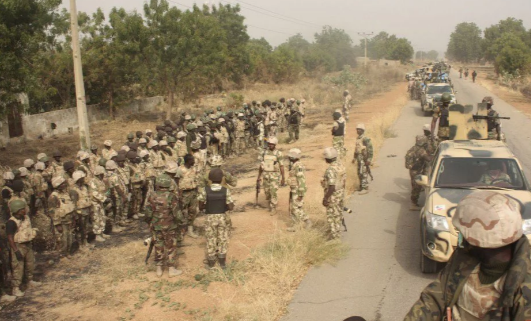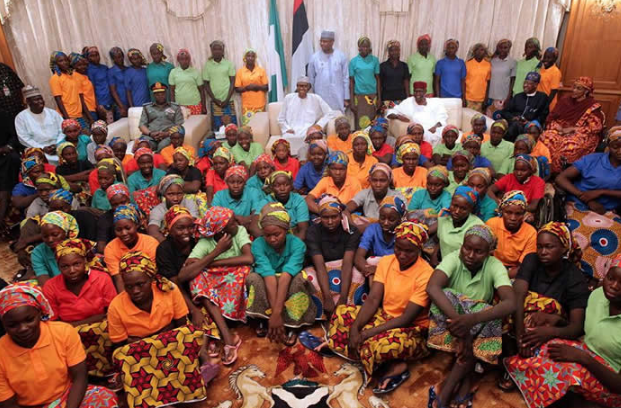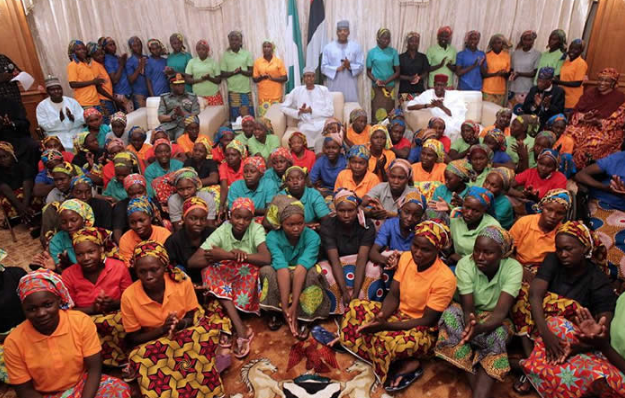The Federal Government on Monday assured Nigerians that everything was being done to ensure that other Chibok School girls abducted by the Boko Haram terrorists regain their freedom.
The Permanent Secretary, Ministry of Foreign Affairs, Amb. Sola Enikanolaiye, disclosed this in his address to the UN Security Council’s open debate on “Women and peace and security: Sexual violence in conflict” in New York.
Enikanolaiye explained that after their freedom, the Federal Government would also ensure that the girls were freed from the ideological grips of the terrorist group.
“We seize this opportunity to assure you that following the recent release of 82 of the abducted Chibok school girls,
government has intensified its efforts at securing the release of the abducted girls and the remaining ones, including freeing them from the ideological grips of Boko Haram terrorists.
“Having regained their freedom, it is equally important that they regain
their self-esteem and be assisted to return to their families and back to their schools.
“Furthermore, emergency teams of psycho-social counsellors and health professionals have been dispatched
to the north east to assist with the profiling of victims for appropriate therapies,” he said.
According to him, Nigeria has carefully and favourably considered joining the existing 108 countries to sign up to the Paris Principle and Commitment on the protection of children in armed conflicts.
The Permanent Secretary pointed out Nigeria’s active participation at the international Ministerial Conference marking the 101h Anniversary of the Paris process held in February.
“It is our conviction that this step will help to strengthen Nigeria’s commitment to global frameworks in further preventing the recruitment and use of girl-children as child or female bombers by Boko Haram.’’
According to him, Nigeria recommit to ensuring that women and girls enjoy full rights and that those who have perpetrated sexual violence are dealt with in accordance with our national laws and international obligations.
“In addition, the Government of Nigeria has put in motion legal remedies for victims of Boko Haram terrorism in the form of rape and other sexual violence against children, abduction of children and other grave violations.
“Other remedies of legal and social nature taken so far by the Federal Government include diligent prosecution of 203 detained Boko Haram terrorists in competent courts of law.
“As well as the reintegration, reorientation and rehabilitation programmes designed to meet the peculiarities of each victim of sexual violence.”
To achieve an enduring result in the search for workable solutions to the challenges of sexual violence in conflict, he said priority must be accorded to addressing the enabling environment and underlying root-causes of conflicts.
This he noted includes, poverty, hunger, human rights abuses, injustice, unemployment, corruption, lack of inclusiveness and impunity.
The envoy also stressed that perpetrators must be held accountable, but the capacity of State to do so with the prevalence of weak structures and
institutions needs to be addressed.
“Mr President, this open debate bears great relevance to the terrorist activities of Boko Haram in the North East region of Nigeria, which have led to huge displacement of about two million people and conflict related violence against women and girls that have been widely condemned.
“Nigeria has always acted concertedly to ensure accountability for sexual violence, we have also collaborated with the UN and other international partners to improve service delivery and enhance protection measures both in communities and areas where women and girls seek refuge.
These efforts by the Government of Nigeria are in the context of the great strides made by our military in degrading Boko Haram,” he said.
In spite of the daunting challenges, Nigeria has always been in the vanguard of promoting the involvement of women in conflict resolution, as well as in the promotion of peace and security.
He pointed out that just last week, Nigeria launched the revised National Action Plan for the Implementation of the UN Security Council Resolution 1325 and Related Resolutions on Women, Peace and Security.
“We have also taken measures to enhance the security of women and girls in the camps for the Internally Displaced Persons to reduce their vulnerability and promote their safe return to their homes and reintegration into the society.
“As part of efforts to counter violent extremism, Nigeria is taking steps to de-radicalise convicted terrorists through the development of a range of expert psychologies and counsellors.’’
According to him, this is to pioneer rehabilitation efforts as well as utilising Islamic scholars to counter extremist narratives by training them on aspects of dialogues and religious counselling.
“We are also working assiduously with the affected communities to design economic revitalisation programmes targeted at people most affected by
terrorism and violent extremism,” Enikanolaiye said.
